We are pleased to invite you to the Hyundai KONA N Driving Experience.
The all-new KONA N is the first dedicated Hyundai N SUV. Following Hyundai N’s new claim – “Never just drive” – KONA N offers customers an urban SUV lifestyle experience combined with race track-capable N technologies.
Hyundai KONA N | Driving Experience | Press conference
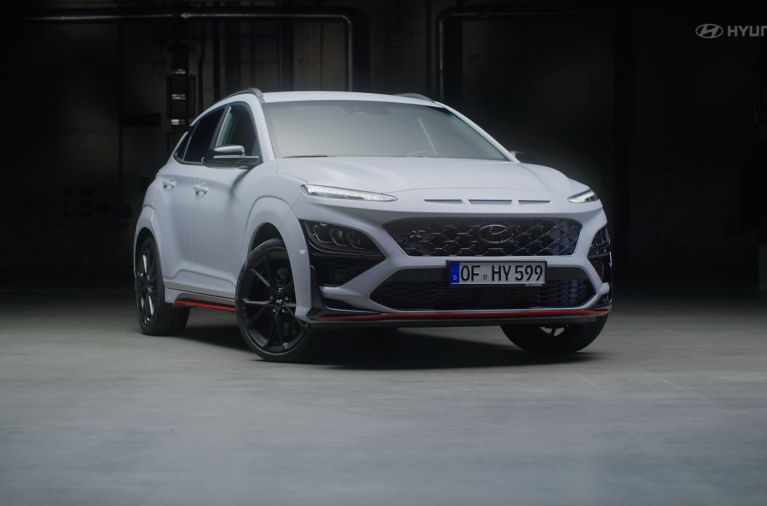
Fuel consumption combined for the Hyundai KONA N 2.0 T-GDI (280 PS) with DCT in l/100 km: 8.5; CO2 emissions combined in g/km: 194 (WLTP)
The all-new Hyundai KONA N offers a winning combination of versatility, spirited acceleration, agility and racetrack capability. It is powered by a 2.0 litre turbocharged GDI engine paired exclusively with Hyundai’s N DCT, an enhanced version the in-house developed eight-speed wet-type dual-clutch transmission. The powertrain delivers a maximum output of 280 PS and 392 Nm.
Hyundai KONA N | Driving Experience | Product highlights

Hyundai KONA N | Driving Experience | Test drive

The engine offers a flat power tune that ensures high response and improved acceleration for even more fun to drive on the racetrack, thereby utilizing more of the engine’s potential. KONA N has a maximum speed of 240 km/h and can accelerate from 0-100 km/h in 5.5 seconds using Launch Control.

Fuel consumption combined for the Hyundai KONA N 2.0 T-GDI (280 PS) with DCT in l/100 km: 8.5; CO2 emissions combined in g/km: 194 (WLTP)
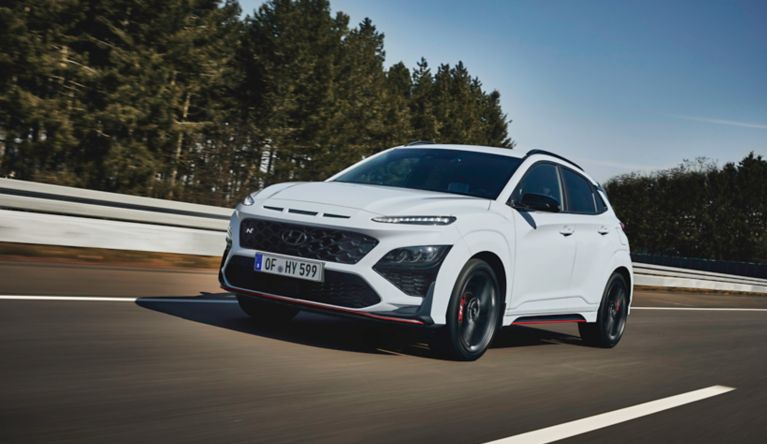
Fuel consumption combined for the Hyundai KONA N 2.0 T-GDI (280 PS) with DCT in l/100 km: 8.5; CO2 emissions combined in g/km: 194 (WLTP)
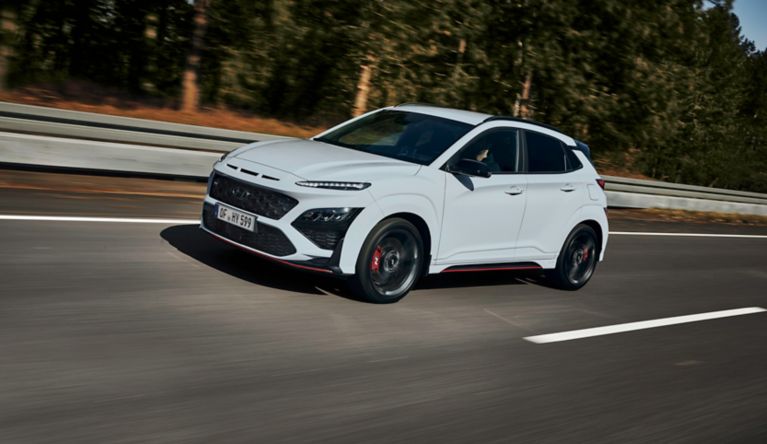
Fuel consumption combined for the Hyundai KONA N 2.0 T-GDI (280 PS) with DCT in l/100 km: 8.5; CO2 emissions combined in g/km: 194 (WLTP)
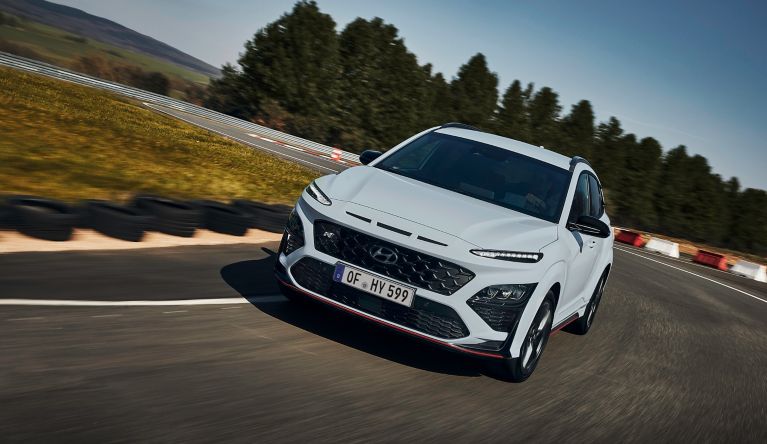
Fuel consumption combined for the Hyundai KONA N 2.0 T-GDI (280 PS) with DCT in l/100 km: 8.5; CO2 emissions combined in g/km: 194 (WLTP)
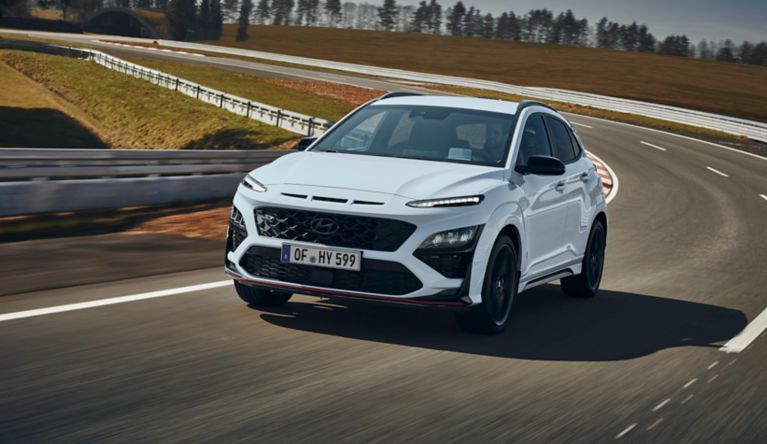
Fuel consumption combined for the Hyundai KONA N 2.0 T-GDI (280 PS) with DCT in l/100 km: 8.5; CO2 emissions combined in g/km: 194 (WLTP)
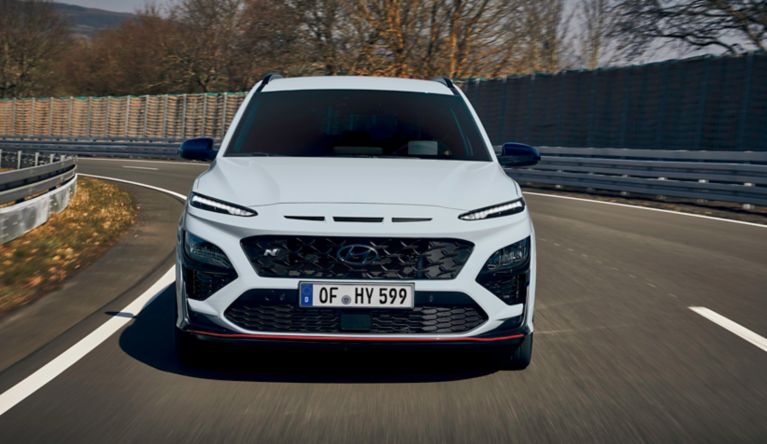
Fuel consumption combined for the Hyundai KONA N 2.0 T-GDI (280 PS) with DCT in l/100 km: 8.5; CO2 emissions combined in g/km: 194 (WLTP)
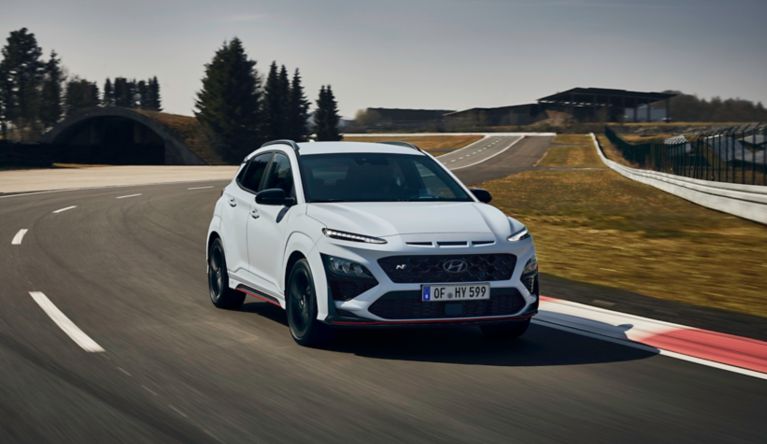
Fuel consumption combined for the Hyundai KONA N 2.0 T-GDI (280 PS) with DCT in l/100 km: 8.5; CO2 emissions combined in g/km: 194 (WLTP)
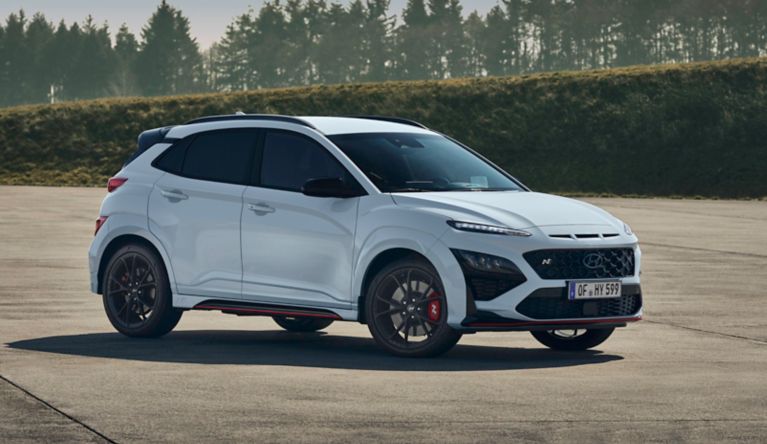
Fuel consumption combined for the Hyundai KONA N 2.0 T-GDI (280 PS) with DCT in l/100 km: 8.5; CO2 emissions combined in g/km: 194 (WLTP)
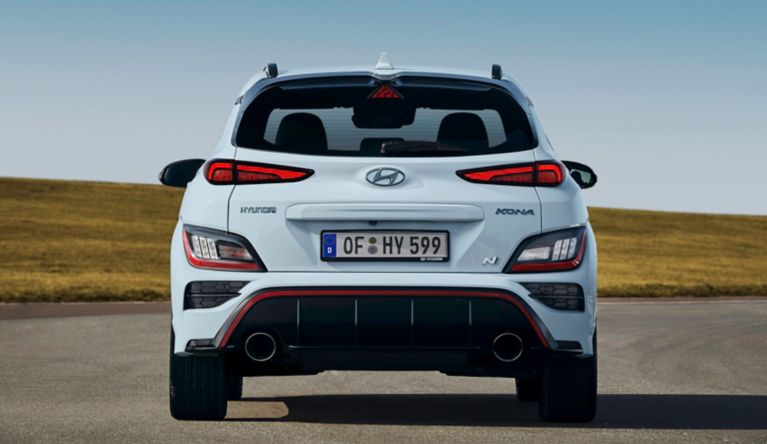
Fuel consumption combined for the Hyundai KONA N 2.0 T-GDI (280 PS) with DCT in l/100 km: 8.5; CO2 emissions combined in g/km: 194 (WLTP)
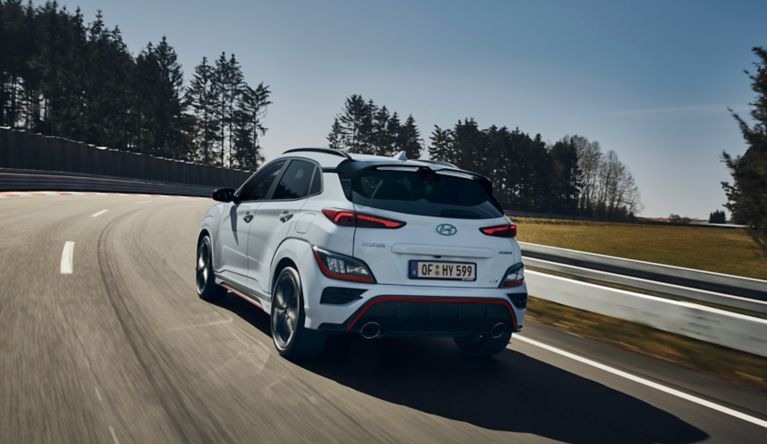
Fuel consumption combined for the Hyundai KONA N 2.0 T-GDI (280 PS) with DCT in l/100 km: 8.5; CO2 emissions combined in g/km: 194 (WLTP)
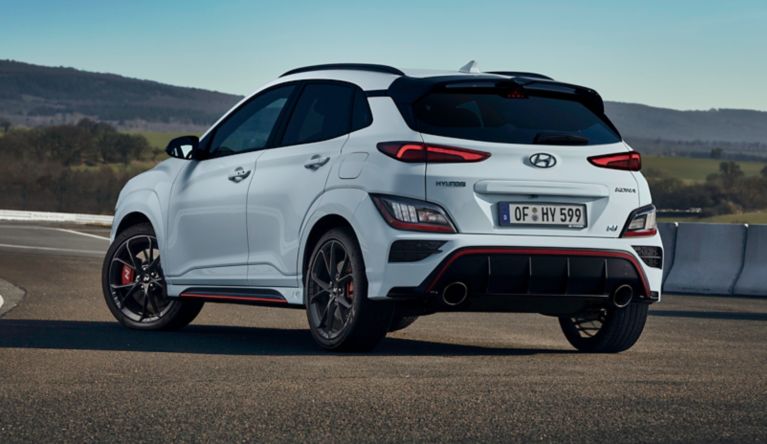
Fuel consumption combined for the Hyundai KONA N 2.0 T-GDI (280 PS) with DCT in l/100 km: 8.5; CO2 emissions combined in g/km: 194 (WLTP)
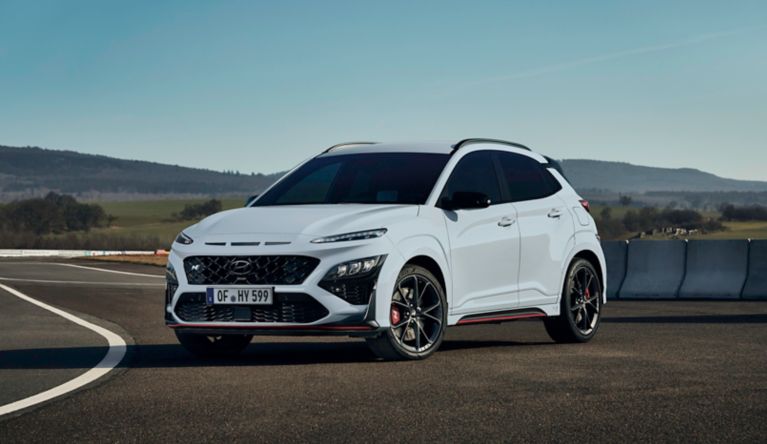
Fuel consumption combined for the Hyundai KONA N 2.0 T-GDI (280 PS) with DCT in l/100 km: 8.5; CO2 emissions combined in g/km: 194 (WLTP)
All-new KONA N has been developed on the basis of the three pillars of all Hyundai N models: corner rascal, everyday sports car and race track capability:
- Corner rascal: unique carving experience delivered with precision
- Everyday sports car: control made easy, from smooth urban commutes to exhilarating racetrack drives
- Race track capability: drive hard on the racetrack, just as it is
Key highlights of the KONA N

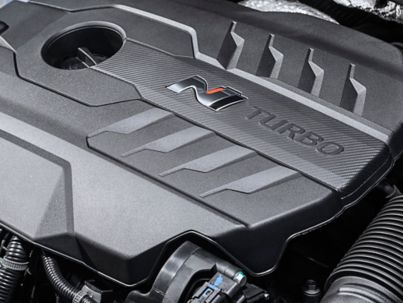
Left: Turbocharged engine: The 2.0 T-GDI engine delivers 280 PS and a substantial increase in flat power for more torque and power at lower RPMs, improving responsiveness, acceleration, and fun. Right: Dual-clutch transmission: The quick-shifting automatic wet-type 8-speed Dual-Clutch Transmission (N DCT) also lets you select gears manually for when you crave more race car energy.
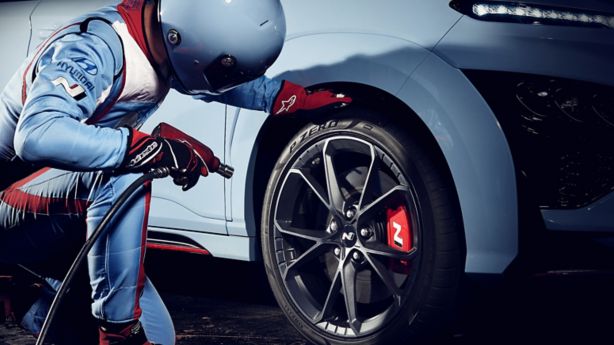

Left: Fuel consumption combined for the Hyundai KONA N 2.0 T-GDI (280 PS) with DCT in l/100 km: 8.5; CO2 emissions combined in g/km: 194 (WLTP)
Left: N Corner Carving Differential: The Electronic limited-slip differential (e-LSD) controls the power transfer to each front wheel. It improves steering and stability in high speed turns. Right: High-performance tyres: The tailor-made Pirelli P Zero tyres are the same ones being used by Hyundai teams in the World Rally Championship.
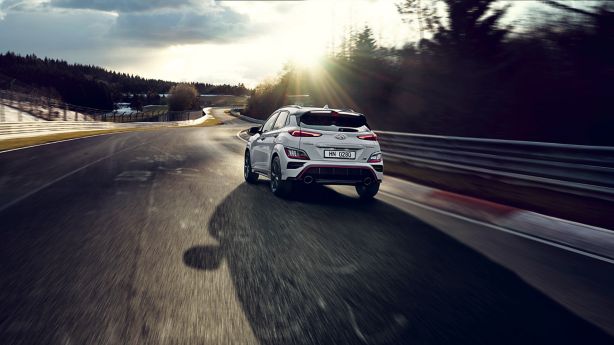

Right: Fuel consumption combined for the Hyundai KONA N 2.0 T-GDI (280 PS) with DCT in l/100 km: 8.5; CO2 emissions combined in g/km: 194 (WLTP)
Left: Fuel consumption combined for the Hyundai KONA N 2.0 T-GDI (280 PS) with DCT in l/100 km: 8.5; CO2 emissions combined in g/km: 194 (WLTP)
Left: N Grin Control System & Traction control: N Grin Control System offers five drive modes across all N models (Eco, Normal, Sport, N and Custom) while Traction Mode control empowers the KONA N to perform in rough conditions. Right: Launch Control: Launch Control prevents tyre slippage and ensures optimal traction for a powerful start.











